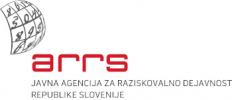Evolution of Authorial Roles: Slovene Literary Author in Comparative European Context
Principal Investigator at ZRC SAZU
Marijan Dović, PhD-
Original Title
Evolucija avtorskih vlog: Slovenski literarni avtor v evropskem primerjalnem kontekstu
-
Project ID
Z6―9159
-
Duration
1 January 2007–31 December 2008 -
Financial Source

The research starts off by analyzing the paradox situation, which the concept of the author meets at the beginning of the 21st century, and focuses on the historical changes of authorial roles and functions, connected to the evolution of contemporary technologies, media, institutions and legislation. It tries to emphasize the correlations between the authorial roles, media and technologies, to show the changes and evolution of an authorial role in Slovene literature and culture until today (in comparison to other European literatures) and also to set some hypotheses on the future of what will be going on with an author. Special focus is placed on the author of Slovene literature from its beginnings in 18th century until modern times. Crucial periods in this development were the period when literature was adopting the role of national emancipation, the period when the model of a writer-artist was being finally established (which coincided to the professionalization of literary producer and establishment of an autonomous literary system), and the critical point in the last decades of the 20th century, when the characteristic model of a writer-dissenter slowly started to lose its significance. This evolution is always viewed in the context of similar processes elsewhere in Europe – in “great” literatures (e.g. German) as well as in smaller and more similar (e.g. Czech or Croatian).
1.
Substantial monograph on the history of the development of the authorial role in the Slovenian literature from the age of Enlightenment till today.
The monograph is based on the achievements of contemporary autorship theory and history of the Western author. Its aim is to describe the evolution of the models of literary writers in Slovenian cultural space from the end of 18th century till present times. The monograph represents the first synthetic application of the systemic paradigm in the Slovene humanities.
Bibliographic reference (COBISS.SI-ID): 235594752
2.
Analysis of early literary representations of national history in the works of Slovenian Enlightenment writers and the "Slovene cultural syndrome".
The English paper treats early representations of national history in Slovenian literature. Two cohesive stories, “Illyric” and “Carantanian”, proved to be most characteristic and appealing in poetical works before 1848. These historical fragments have to be observed in the light of the later thesis of the “Slovene cultural syndrome”, which was often used to describe the relationship between Slovene literature and the project of national emancipation. The paper tries to ascertain in which way literature actually “replaced” politics and attempts to revise some elements of the popular thesis.
Bibliographic reference (COBISS.SI-ID): 28544813
3.
Introductory overview of the problem of literary censorship in a bi-lingual special edition of "Primerjalna književnost".
Introductory article on the problem of literary censorship in a bi-lingual special edition of "Primerjalna književnost" opens up the potentials and scope of re-thinking the relationship between literature and censorship both from historical as well as from theoretical perspectives. Literary censorship is set in the historical context, and its modifications are recapitulated - from antiquity to modern times, when one of the challenges are the collisions of the law and literary system.
Bibliographic reference (COBISS.SI-ID): 37376610
4.
Analysis of modifications of literary censorship in the transition from totalitarian to post-totalitarian mode.
This article deals with the relationships between totalitarian and post-totalitarian censorship, especially regarding the censorship of literary works. A general conceptual outline for discussing censorship is followed by an analysis of models and patterns of totalitarian – especially communist – censorship. The conclusion deals with some useful areas to consider with regard to post-totalitarian literary censorship, including economics (the capitalist book market), ethics (political correctness), and legislation.
Bibliographic reference (COBISS.SI-ID): 37376866
5.
Critical overview of the representation of the Slovenian literary culture in the East-central European context.
The paper discusses key methodological innovations in the first three volumes of "History of the literary cultures of East-Central Europe: junctures and disjunctures in the 19th and 20th centuries". While in representing individual literary cultures, such as Slovene, details and overall balance are sometimes quite contestable, the general aim of this ambitious project, namely the shift from isolated national perspectives towards the post-national view which reveals striking structural similarities among many cultures in the region, seems to be well achieved.
Bibliographic reference (COBISS.SI-ID): 29051949